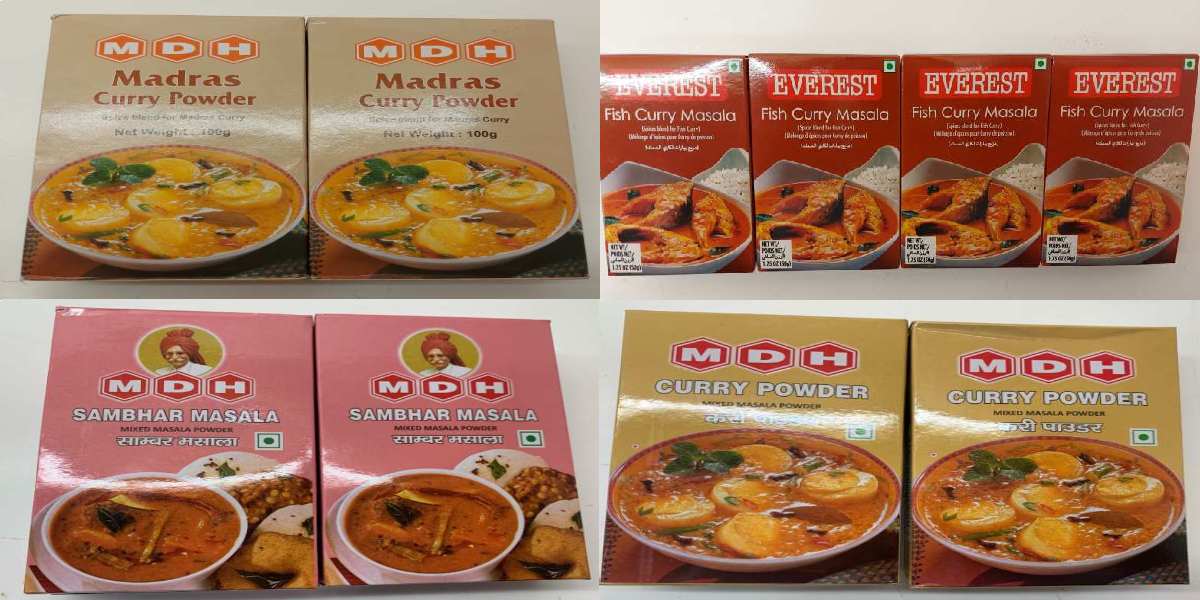On 20 April, South First reported that Hong Kong’s food regulator identified four products from MDH and Everest containing ethylene oxide.

MDH and Everest products which have been found to contain pesticides. (Supplied)
Nepal’s Department of Food Technology and Quality Control has imposed a ban on the import, consumption, and sale of products of two prominent Indian spice brands — MDH and Everest — across the country.
The ban followed quality concerns that were flagged by Singapore and Hong Kong.
On 20 April, South First reported that Hong Kong’s food regulator, the Centre for Food Safety (CFS), identified four products from spice brands MDH and Everest containing the pesticide ethylene oxide, which is classified as a Group-1 carcinogen by the International Agency for Research on Cancer (IARC).
The Nepal ban was confirmed by Mohan Krishna Maharjan, the department’s spokesperson, as reported by ANI.
The department on Friday, 17 May, also put out a notice on its official website.
Maharjan explained, “The import of Everest and MDH brand spices has been prohibited in Nepal. This decision was made following reports of harmful chemical traces in these spices.”
He added: “The ban on import was imposed a week ago, and we have also halted their sales in the market.”
He also noted that tests were being conducted to determine the levels of ethylene oxide in products from these specific brands.
The ban is expected to remain effective until the final results of these tests are available.
Maharjan also pointed out that this move aligned with similar actions taken by Hong Kong and Singapore.
The food regulator of Hong Kong found that four India-manufactured spice products contained the pesticide ethylene oxide.
Three of them were MDH’s Madras Curry Powder (spice blend for Madras Curry), Sambhar Masala Mixed Masala Powder, and Curry Powder Mixed Masala Powder, as well as Everest’s Fish Curry Masala.
“The CFS of the Food and Environmental Hygiene Department announced today that samples of several kinds of prepackaged spice mix products were found to contain a pesticide, ethylene oxide,” it said in a statement on 5 April.
“Members of the public should not consume the affected products. The trade should also stop using or selling the affected products immediately if they possess any of them,” it added.
In response to the situation, Indian government sources informed the media that the use of ethylene oxide (EtO) is regulated in various countries.
They added that the permissible limits ranged from 0.73 percent to 7 percent.
These sources emphasised the need for standardised regulations for EtO use globally.
They also highlighted that the spices banned in these countries represent less than 1 percent of India’s total spice exports.
To address the issue, the Spice Board of India has implemented several measures to ensure the safety and quality of Indian spice exports.
The board has adopted recommendations from the Techno-Scientific Committee, which conducted a thorough root cause analysis.
They include inspecting processing facilities and collecting samples for testing in accredited laboratories.
Furthermore, the Spice Board of India organised a stakeholder consultation with over 130 exporters and associations, such as the All India Spices Exporters Forum and the Indian Spice and Foodstuff Exporters’ Association.
The board issued guidelines for EtO treatment to all exporters to prevent contamination in spices destined for international markets.
(Edited by Arkadev Ghoshal)

Jun 15, 2024

May 06, 2024

May 05, 2024

May 02, 2024

May 01, 2024

May 01, 2024